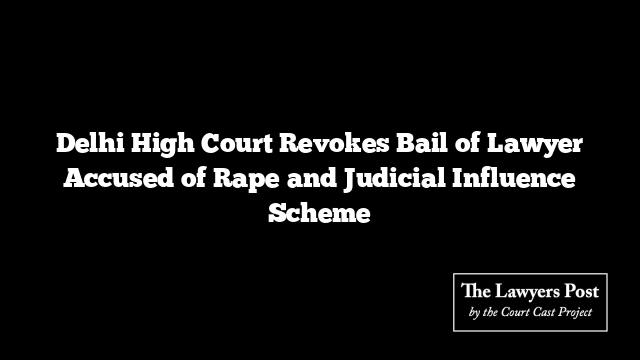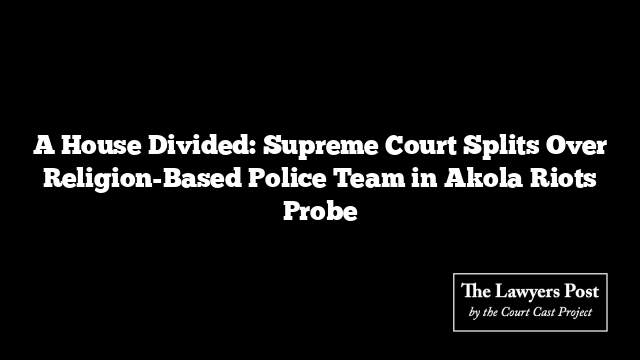The Delhi High Court has withdrawn the anticipatory bail of a 51-year-old advocate accused of repeatedly raping a 27-year-old fellow lawyer, assaulting her, and allegedly trying to manipulate the justice process through two judicial officers.
Justice Amit Mahajan, who delivered the ruling, described the accused’s conduct as “an egregious affront to the principles of justice,” ordering that an administrative inquiry be launched into the involvement of the two judicial officers who allegedly pressured the survivor to withdraw her complaint.
The decision followed revelations that one of the officers, Sanjeev Kumar Singh, had already been suspended and faced disciplinary proceedings, along with another district court judge, after the High Court took administrative notice of their alleged role.
The woman, also a practising advocate, had filed an FIR in June 2025 at Neb Sarai Police Station. She accused the senior lawyer, a widower, of sexually assaulting her over several years under false promises of marriage. Her complaint stated that she became pregnant earlier this year, was taken for an abortion, and later assaulted again at a South Delhi club — an incident reportedly caught on CCTV.
Initially, a trial court in Saket had granted the accused pre-arrest bail in July. However, the complainant later approached the High Court, presenting evidence of ongoing intimidation, including WhatsApp messages and phone calls. Audio recordings were also examined, revealing discussions about a ₹30 lakh offer and potential job placements to persuade her to drop the case.
Justice Mahajan, citing these developments, observed that the accused’s actions after receiving bail had “shocked the conscience of the court,” emphasizing that liberty cannot protect someone attempting to subvert justice or influence witnesses.
The High Court therefore cancelled his anticipatory bail and ordered him to surrender within a week. It also directed a full administrative inquiry into the conduct of the judicial officers named in the complaint, underscoring that judicial integrity cannot be compromised through private influence or coercion.
The case, now under renewed scrutiny, has thrown a sharp light on the intersections of power, privilege, and justice within the legal fraternity — and on how quickly the promise of fairness unravels when influence attempts creep into the courtroom’s shadow.





